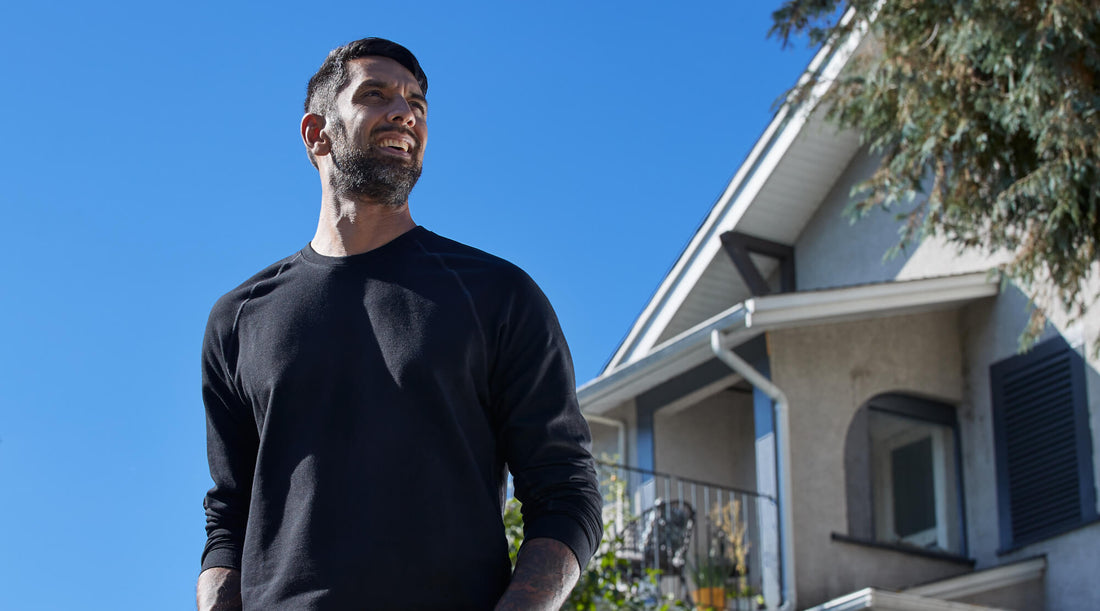Is Bamboo Fabric Sustainable?
What is Bamboo?
Bamboo is a very quickly growing grass that has been rising in popularity due to its classification as an eco-crop. With that in mind, it’s easy to see why the plant is having a surge of demand. Whether it be construction, homewares or fabric the product seems to be a growing craze that shows no signs of slowing down. But is Bamboo fabric sustainable?

How is Bamboo grown?
Firstly, Bamboo is generally a very sustainable crop that grows quickly, requires no fertilizer, and self-regenerates from its roots, removing the need for replantation. Compared to the difficulty of growing cotton, bamboo wins in a landslide.
However, although bamboo can be grown sustainably, and there’s no reason to grow the crop in a hard and omitting way, there’s no guarantee that all the product you come across has been grown sustainably. Most of the world’s bamboo stocks come from China, and although the government has tried hard to crack down on harmful yield-boosting practices, it’s difficult to eliminate the problem.
Your carbon footprint needs to ask the question, “Is your bamboo farmed sustainably?” when shopping, a promise we’re proud to be able to deliver on. That’s why we create as many products locally as we can, controlling the process for maximum results. We use the best available bamboo fabric which is created in Canada, from imported bamboo rayon. The milling and dyeing processes meet the Oeko-Tex 100 Standard, which is widely regarded as the standard for the proper use and disposal of textile processing chemicals.

What about the manufacturing process?
The fabric we use for creating our products is a silky soft bamboo fabric that you might find commonly used in clothing, sheets, underwear, etc. Its name is Bamboo Rayon and it is produced using a chemical process, quite similar to the way wood chips are turned into rayon. This is the point in the production process that makes sustainability a near-impossible task with current technology. A Rayon is a raw material that has been converted using a chemical process. There are many sources you can use to create rayon, whether it be cotton, wood, or bamboo.
Bamboo rayon is usually created using a viscose process, which involves the dissolution of cellulose material in a chemical solution, producing a viscous substance. This is then put through a spinneret process, and is spun into fibers that can be woven into threads and eventually fabrics. The chemicals commonly used in this process like caustic soda and carbon disulfide are a risk to human health. However, new technology is now allowing us to capture around 50% of the hazardous waste produced by this process, with the ability for that to be reused sustainably. This new development is a testament to the incredible work that the wet processors are doing to improve their practices. We hope that we will be very close to capturing 100% of these chemicals in the next few years to come.
The fabric that you get as a finished product from this process is highly breathable, and much stretchier than cotton, making it perfect for clothing that sits on the skin, and particularly useful when creating products for people with larger statues. It’s also easier to create a softer and more high-quality product because it’s much simpler to work into a high thread count. There are also notable possibilities of UV resistance and antibacterial properties, but more evidence needs to be secured to see exactly what those are.

So is bamboo fabric sustainable or not?
Bamboo is a highly sustainable crop that is easy to grow and doesn’t impact heavily on the environment. Its chemical-free and speedy growth make it the ideal candidate for sustainability in the future. Research and technology advances need to be made before the bamboo fabric can be classed as completely sustainable.
However, the process is much much more sustainable than polyester and conventional cotton. We’re proud to be a brand that is supporting the industry to make those leaps in advancement and we’re incredibly excited to be part of the world’s sustainable future. Investing in products of this nature during this phrase means that you’re supporting the great work being done to combat aggressive and unsustainable farming practices, and making a difference through the power of your own choices.

